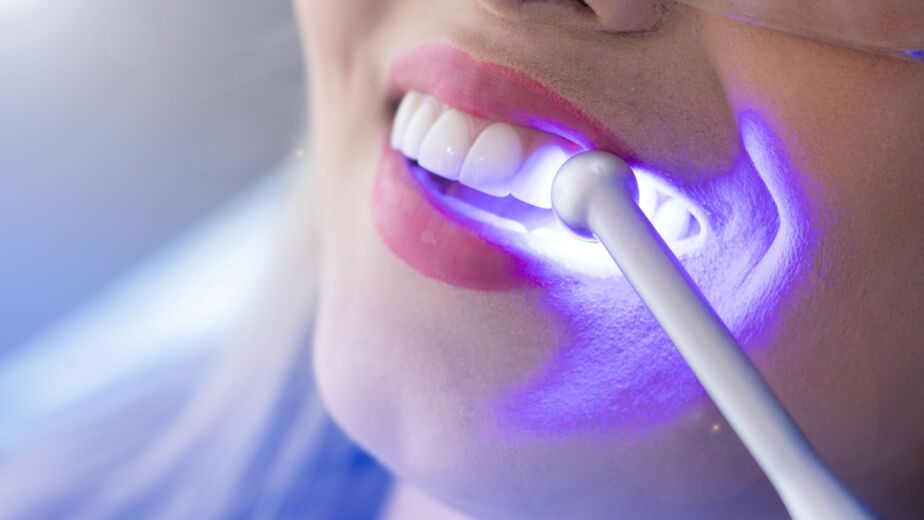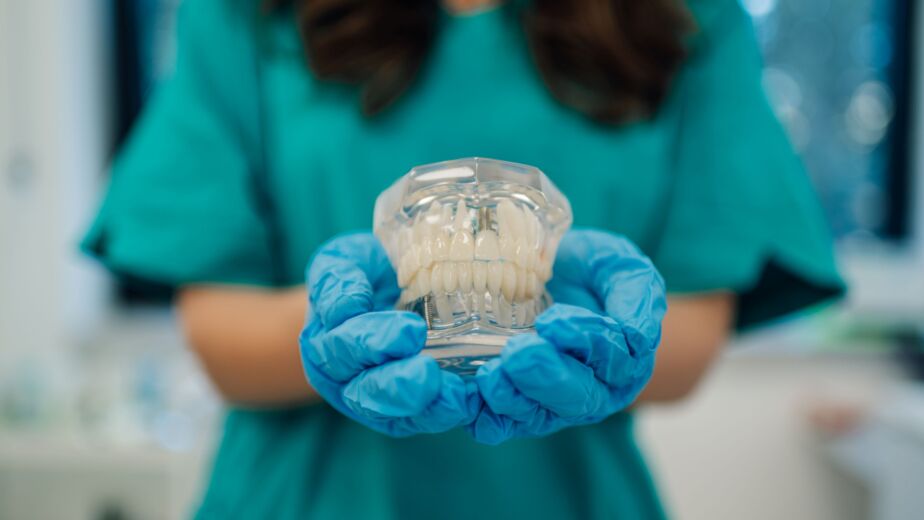Planning treatment abroad can feel overwhelming, especially when you are comparing Dental Implants Cost across clinics, cities, brands, and “package” offers. That is why this 2026 guide breaks down typical price ranges in Turkey. It also explains what clinics usually include, what they often charge extra for, and how to compare options safely as an international patient.
TL;DR (quick takeaways)
- In Turkey, dental implants cost often ranges $400 to $1,300 for implant + abutment + crown.
- However, “implant price” may mean implant only, so confirm what is included.
- Also, expect possible extras: grafts, sinus lift, extractions, sedation, temporaries.
- For full-arch cases, All-on-4 / All-on-6 often runs $3,750 to $12,000 per arch.
- Finally, compare clinics using an itemized quote, implant brand, imaging, and aftercare plan.
What Is the Average Cost of Dental Implants in Turkey?
There is no single “average” that fits everyone. For example, a simple case (good bone, straightforward placement, standard crown) may cost far less than a case that needs grafting, sinus work, or more complex aesthetics.
A practical way to think about Turkey pricing in 2026 is to separate the single implant total (implant + abutment + crown) from the implant fixture only (implant post only, with the crown priced separately).
Why “average” is tricky:
- Some clinics quote only the implant fixture, while others bundle the implant, abutment, and crown.
- Brand tiers matter (premium systems can cost more than mid-range).
- Add-ons such as bone grafts or sinus lifts can change the total significantly.
- Currency and exchange rates can affect what you actually pay if the quote is in a foreign currency.
Request pricing
By sending, you agree we may contact you on WhatsApp with pricing.
Got it! We’ll WhatsApp you the pricing shortly.
Dental Implants Cost range in Turkey (2026)
To estimate dental implants cost ranges as fairly as possible, we reviewed publicly posted clinic price lists in Turkey and reputable dental travel platforms, then summarized the results with clear cost drivers.
| Treatment | Typical Range (USD) | Notes (what affects price) |
|---|---|---|
| Single implant (implant + abutment + crown) | $400 to $1,300 | Brand, crown material, case complexity, temporaries. |
| Implant fixture only | $350 to $1,150 | Implant system, what’s included (abutment/crown). |
| Crown only | $160 to $350 | Material and lab quality. |
| Bone graft (minor) | $150 to $300 | Amount of graft and whether membrane is needed. |
| Bone graft (major) | $275 to $500 | Larger volume, membranes, staged healing. |
| Sinus lift | $275 to $600 | Open vs closed technique; grafting may be separate. |
| All-on-4 per arch | $3,750 to $9,000 | Implant system, temporary vs final bridge, materials. |
| All-on-6 per arch | $4,750 to $12,000 | More implants, bridge material, bite complexity. |
Which treatment are you interested in?
What Is Included in Dental Implants Packages?
Turkey clinics and dental tourism coordinators often advertise “packages,” but inclusions vary. Before comparing offers, ask for an itemized list that separates diagnostics, surgery, and prosthetics (abutment/crown).
Common inclusions (often, but not always)
- Initial consultation and treatment plan
- Imaging: panoramic X-ray and sometimes CBCT (3D scan)
- Implant placement (the implant post)
- Abutment and crown (sometimes included, sometimes extra)
- Local anesthesia (typically)
- Follow-up checks during your stay
Common exclusions (often extra)
- Tooth extraction(s)
- Bone grafting and sinus lift
- IV sedation or anesthesiologist fees
- Temporary teeth (or upgraded temporary bridges)
- Hotel, flights, and travel insurance (some “holiday” packages include hotel/transfers, many do not)
- Long-term warranty terms (varies widely by clinic and brand)
Quick check: what to confirm in your quote
| Item | Ask the clinic to confirm | Why it matters |
|---|---|---|
| Crown included? | Yes/No, plus the crown material | Affects the final total most. |
| CBCT included? | Yes/No | Often charged as an add-on. |
| Temporary tooth/bridge | Included or extra | Impacts comfort and appearance. |
| Sedation | Type and cost | Can raise the price quickly. |
| Warranty/aftercare | Terms in writing | Clarifies support after you return. |
Factors That Affect Dental Implants Prices
Implant Brand and Materials
Implant systems come in tiers. As a result, many Turkey clinics offer multiple implant options, and the brand you choose can shift your quote noticeably.
Practical examples you may see in quotes:
- Premium systems (often higher-priced)
- Mid-range systems (often lower-priced)
- Crown materials like zirconia or e-max can also change the final total.
What to ask:
- “Which implant brand and model will you use for my case, and is it included in the price?”
- “What crown material is included, and what are the upgrade options?”

Number of Implants Needed
A single missing tooth usually means one implant and one crown. However, full-arch restorations work differently. For example, clinics often price All-on-4 or All-on-6 per arch, and as a result, the bridge design becomes a major part of the total cost.
Cost-saving reality (and why quotes differ):
- Some full-arch plans reduce the number of implants by using a fixed bridge design.
- The final bridge material and whether you receive temporary teeth can be a big cost driver.
What to ask:
- “How many implants are you recommending and why?”
- “Is the quote for temporary teeth, final teeth, or both?”
Request pricing
By sending, you agree we may contact you on WhatsApp with pricing.
Got it! We’ll WhatsApp you the pricing shortly.
Clinic Location and Technology
City and overhead can affect pricing. For example, Istanbul, Antalya, and Izmir may price differently. In addition, clinics that invest in advanced technology or in-house labs often structure costs differently.
Technology that often affects price (and sometimes value):
- 3D imaging (CBCT) for planning
- Guided surgery / digital planning
- In-house lab and digital impressions (can speed up crowns and adjustments)
Rather than paying extra blindly, ask how tech changes your outcome, timeline, or number of visits.
Surgeon Experience
Experience matters, but the safest way to evaluate it is by evidence, not marketing.
What to verify:
- Who performs the surgery, and who designs the prosthetic (crown/bridge)?
- Before-and-after cases similar to yours (not just “best” examples).
- Check how the clinic handles complications and follow-up care after you return home.
Tip: Ask for an itemized quote that separates imaging, surgery, implant parts, abutment type, crown material, and any predicted add-ons. That makes it much easier to compare clinics fairly.
Turkey vs Other Countries: Cost Comparison
This comparison helps you sense-check dental implants cost differences across countries using like-for-like assumptions where possible.
| Country | Single Implant Total | All-on-4 per arch |
|---|---|---|
| Turkey | $400 to $1,300 | $3,750 to $9,000 |
| UK | From £2,400 (Bupa starting price) | Often higher than Turkey (varies by clinic and materials) |
| USA | $5,000 to $7,500 (single tooth) | $14,000 to $36,000 per arch |
| Germany | Up to about €3,000+ for implants (varies) | Wide variation by provider and materials |
| UAE | Often quoted in AED; varies by clinic | Often higher than Turkey; varies by provider |
Is It Worth Getting Dental Implants in Turkey?
For many international patients, Turkey can offer significant savings and shorter scheduling times. But “worth it” depends on safety, planning, and aftercare, not just the cheapest headline price.
Safety: dental implants cost transparency
In Turkey, pricing can be more straightforward, but only if the clinic is clear about what the quote includes. “Implant cost” may mean the implant fixture only, or a full total with the abutment and crown.
We keep this simple by providing an itemized breakdown (implant brand, abutment, crown material, and imaging such as CBCT when needed) and stating what is included vs extra, like extractions, grafting, sedation, or temporary teeth. Be cautious with rushed decisions or vague “all-in” offers that are not confirmed in writing.
Planning: timeline and travel logistics
Implant treatment is usually staged, which is normal. A key part of planning is knowing what happens at each step so you can book travel dates realistically and avoid surprise appointments.
Here is a typical timeline many travel patients follow (your dentist will confirm what fits your case):
- First, Trip 1 includes consultation, imaging, and implant placement (and sometimes a temporary tooth, depending on your case).
- Then, you will have a healing period, which often takes several months for integration.
- Finally, Trip 2 covers the abutment and the final crown or bridge fitting, plus bite adjustments.
For a fuller view of the typical implant timeline and visits, read our Dental Implants in Turkey guide.
Aftercare: what happens when you return home

One reason Turkey can feel “worth it” is when aftercare is planned clearly for international patients. Here is what we provide to support you after you travel home:
- Clear handover documents: treatment summary, imaging (when available), and implant brand/model details to share with your dentist at home.
- A direct contact point: so you can reach us with non-urgent questions about normal healing, comfort, and next steps.
- Coordination when needed: we can share records and clarify your treatment plan with a local dentist if you choose to continue follow-ups at home.
- Written terms: we explain what support is included, what may cost extra, and when you will need an in-person visit.
Aftercare varies by clinic, so it is always best to confirm your follow-up plan in writing. For urgent symptoms or severe pain after travel, seek local dental or medical care first, then update us so we can guide the next steps.
Before You Book: Clinic and Safety Checklist
- First, do you have an itemized quote (implant, abutment, crown, imaging, add-ons)?
- Next, did the clinic confirm the implant brand/model and crown material in writing?
- Then, is CBCT needed, and does the quote include it?
- If needed, did they price any grafting or sinus lift in writing?
- Also, who places the implant and who makes the crown or bridge?
- Finally, what aftercare support and documents will you receive for your dentist at home?
Frequently Asked Questions (FAQ)
Most clinics list $400 to $1,300 for a full single-tooth implant (implant + abutment + crown). However, some clinics quote implant-only pricing at $350 to $1,150. In that case, you typically add $160 to $350 for the crown.
Clinics often offer different systems, including both premium and mid-range options. Ask for the exact brand and model in writing.
Before treatment, get a written plan: who to contact, what is covered, and what documentation you will receive. Also consider arranging a local dentist for follow-up checks.
Sometimes the package includes the crown. However, some clinics price the crown separately. So, ask what the quote covers (implant post, abutment, crown) and which crown material they use.
Not always. Some plans provide a temporary tooth first and a final crown later. Ask whether “same-day” refers to a temporary solution or a final restoration.
Next step: get a clear quote
If you are collecting quotes, request two things from each clinic: (1) an itemized written estimate and (2) a simple treatment timeline showing visits and what happens at each stage. That approach usually makes the real “value” clearer than chasing the lowest headline Dental Implants Cost.
If you would like more clarity before you book, we can review your case and provide an itemized quote with a simple timeline.
Sources
- Mayo Clinic. Dental implant surgery: About.
- NHS. Dental implants (patient information).
- American Dental Association (MouthHealthy). Implants.
- American Academy of Periodontology (AAP) – Dental Implant Procedures.



